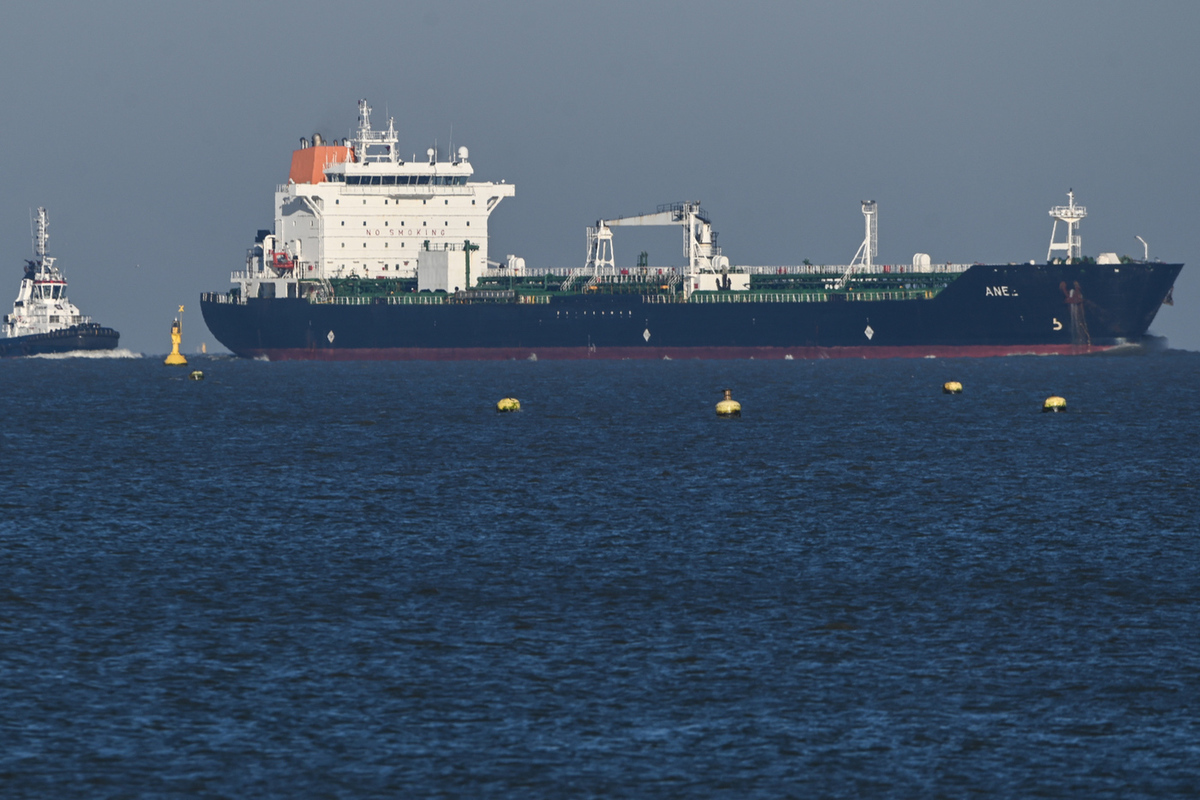America has hit a price ceiling for Russian oil
[ad_1]

The G7 countries intend to tighten the price ceiling for Russian oil. According to the authors of the idea, this will increase Russia’s costs of circumventing this measure and will reduce the Kremlin’s income – since the raw materials industry has always been and still remains the main donor of our economy.
The G7 countries introduced a price ceiling for Russian oil in December 2022 – $60 per barrel. Petroleum products were also caught in the mix. Thus, the maximum price for diesel fuel from Russia is 100 dollars, for fuel oil – 45.
America plays the main role in introducing these restrictions. At the end of last year, it imposed sanctions on tankers suspected of transporting oil at prices above the ceiling. And now, another waving of the sanctions baton…
At the same time, none of the G7 countries specifies how exactly the oil price ceiling will be tightened. Either they will lower it, say, to $50 per barrel, or they will somehow track the routes of tankers “suspected” of violating restrictions.
According to supporters of sanctions policy, the oil ceiling has already done its dirty work. According to experts from the International Energy Agency (IEA), in the first half of 2023, oil exports from Russia, compared to the same period in 2022, decreased by more than 1.5 times – to $77.4 billion.
True, Russian analysts consider these data to be very far from reality. Since the IEA cannot reliably know how much of our “black gold” was exported abroad and at what prices. Russia and our friendly countries know this – 80% of oil supplies are now targeted at them. In any case, Russian Deputy Prime Minister Alexander Novak said that last year oil exports amounted to 234.3 million tons, that is, they decreased by only 3.3% compared to 2022.
Against the backdrop of Russia’s launch of a special operation in Ukraine, the West has increased sanctions pressure on Moscow. As you know, the European Union is already adopting the 13th package of anti-Russian sanctions, America, for its part, recently introduced more than 500 different restrictions. But these measures, as practice shows, boomerang on those countries that themselves introduce them. In particular, in the West, fuel and food prices have risen, inflation has accelerated and unemployment has increased.
The same can happen with the price ceiling. If the West “overextends” its installation, then world oil prices will skyrocket. And the G7 countries, the main consumers of energy resources in the world, will suffer the most from this.
But will Russia be able to survive another round of pressure on its oil revenues if controls on the price ceiling for Russian oil are tightened? He addresses this question to the director of the Energy Development Fund, Sergei Pikin.
“According to the United States and Europeans, the price ceiling actually does not work,” says the expert. “The price of Russian oil is determined not by it, but by the global market situation with a corresponding discount to Russian export grades.” And this discount is the result of general sanctions, and not a specific price ceiling.
– What are the G7 up to now? Probably they will reduce the price per barrel even more, to 50 dollars?
– Most likely, they will try to tighten pressure on those countries and companies that buy Russian oil. This will be associated with secondary sanctions and with obligations under documents that confirm that the price is below the ceiling. Perhaps tightening the screws will go in this direction.
– How is Russian oil currently traded on world markets? Are we forced to give a larger discount?
– It all depends on the price on the market. Today the average discount is 10-12-14 dollars per barrel relative to Brent. If it is 82 dollars per barrel, then we sell, relatively speaking, at 70. When the market is weak, discounts are set large to stimulate buyers. And vice versa.
– But how can we sell at 70 if there is a ceiling of 60?
– That’s what we’re talking about, the Western scheme of restrictions does not work.
– But if they come up with new forms of control over tankers, will we be able to bypass the sanctions?
– In any case, we can. This is the market. Otherwise, the entire world oil trade will have to be closed. Another thing is that any sanctions are associated with additional costs to circumvent them. The more restrictions, the more costs. But sooner or later everything will return to normal.
– Nevertheless, Russian oil exports decreased at the end of 2023…
– Not because of the ceiling, but because we limit ourselves, we work within the framework of the OPEC+ agreement. To balance the global oil market. These are our additional obligations under agreements with other exporting countries. This has nothing to do with our relations with unfriendly countries.
[ad_2]
Source link






